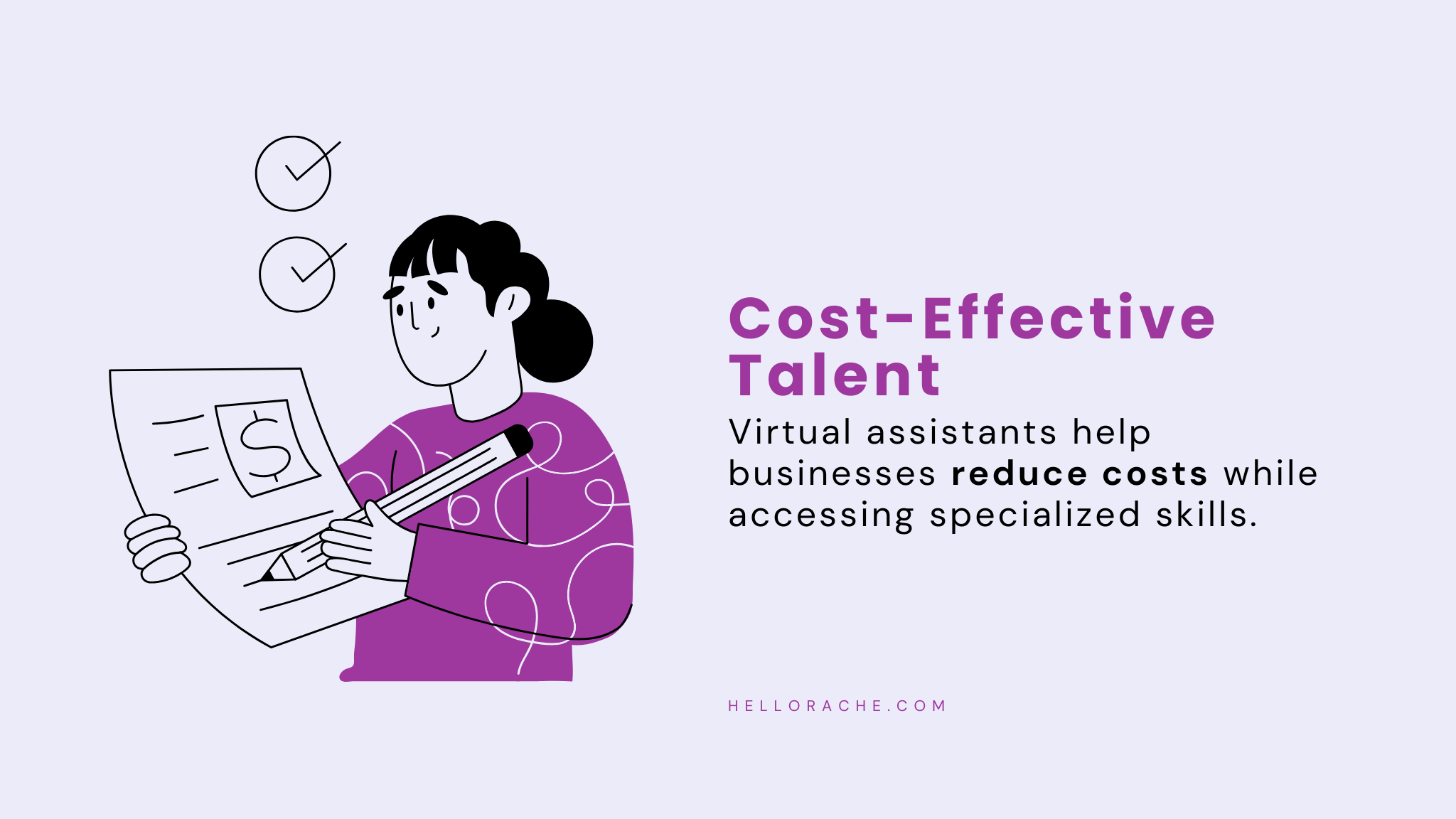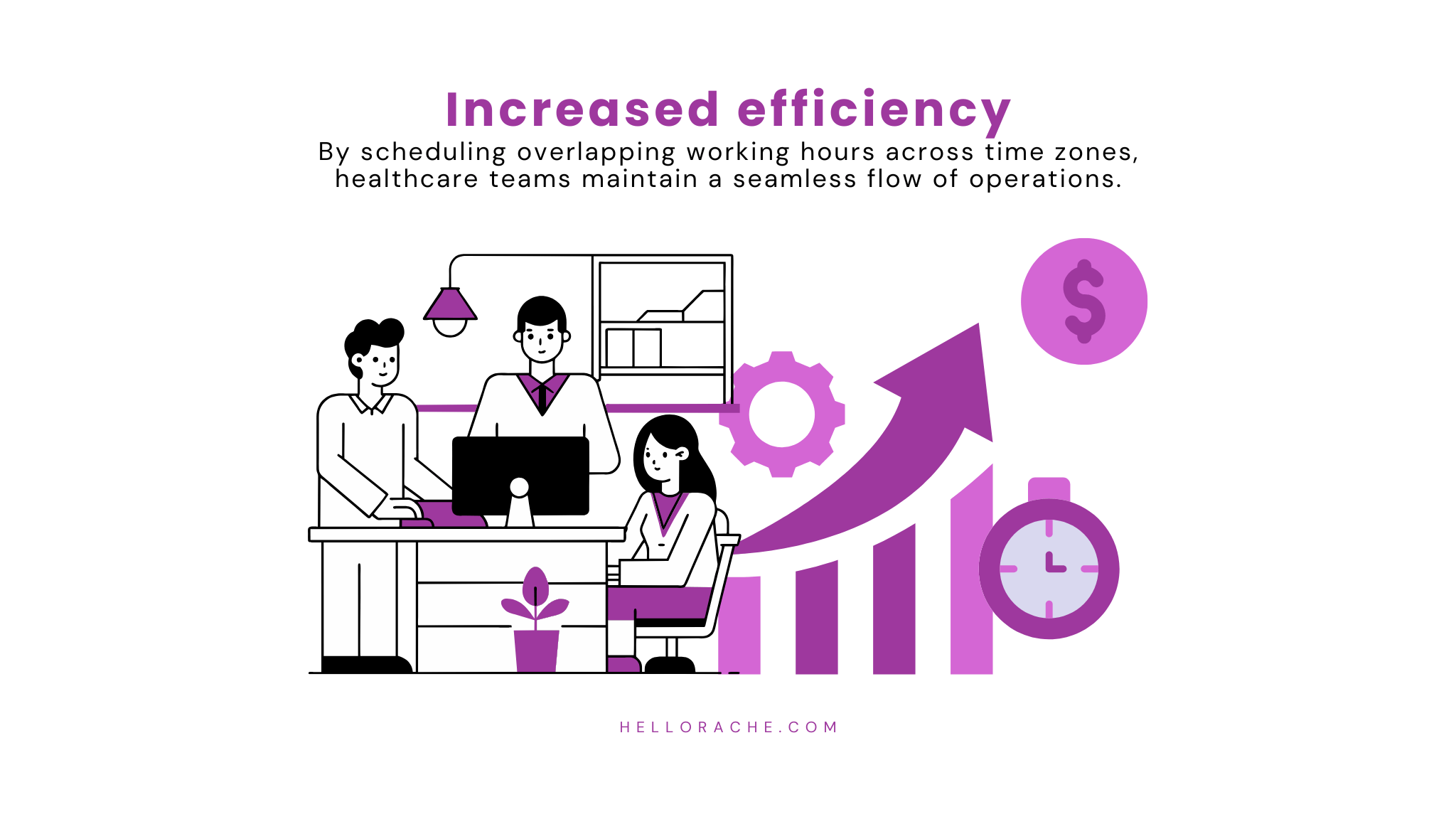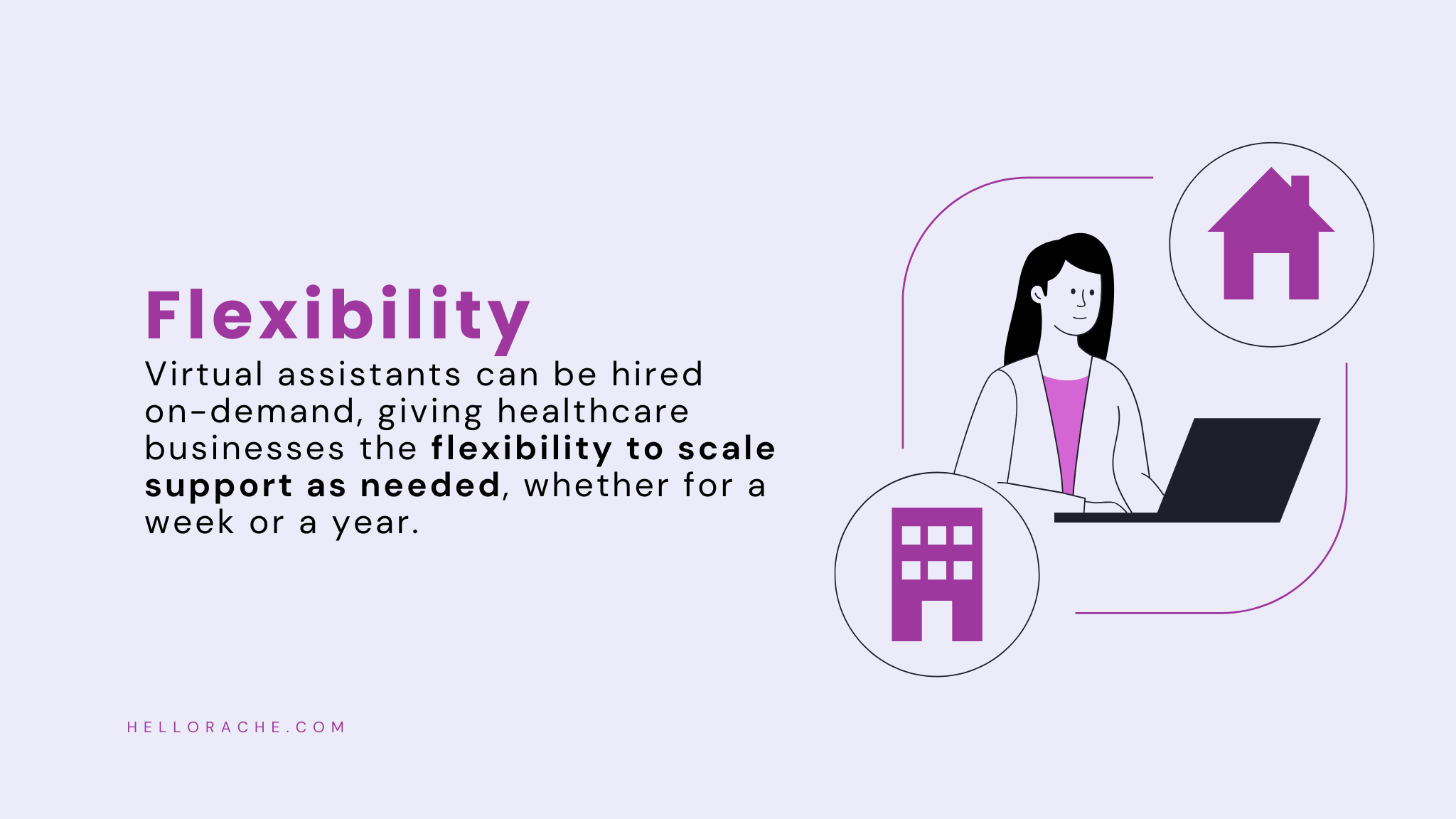Virtual assistants are becoming incredibly popular in healthcare and are expected to continue growing in popularity over the next 10 years. Many healthcare providers have already implemented them into their teams, with many more planning to do so in the near future. But virtual assistants are a relatively new solution to staffing, and many organizations struggle to integrate virtual teams successfully. Therefore, Hello Rache is going to take you through some of the challenges of virtual teams and how to solve them.
Understanding What a Virtual Assistant Is
You may not be fully up to date with what a virtual assistant is, but it’s important you understand the basics before you start tackling the challenges of virtual teams. Fortunately, Hello Rache has the inside scoop on virtual assistants, so we’re going to provide you with a quick overview.
Virtual assistants first captured the imagination of businesses in the early 2010s, quickly evolving into a transformative option for employers in every industry. The Covid-19 pandemic accelerated their rise, establishing virtual assistants as the “new normal“ for many. But what exactly is a virtual assistant?
Picture any assistant you’ve hired before – the key difference is that virtual assistants work remotely. They don’t need to commute or even leave their homes. Advances in internet technology now allow virtual assistants to connect seamlessly to your business systems with just a PC, high-speed internet, and login credentials.
This enhanced connectivity has opened doors for businesses to hire talent from anywhere in the world, freeing them from local limitations and accessing a global workforce. Whether you’re looking for specialized skills or flexible support, virtual assistants make it possible. It’s an incredible opportunity, but success hinges on partnering with the right VA agency to find your perfect match.

Solving the Challenges of Virtual Teams
Virtual collaboration in healthcare is already proving a popular system, and this also extends to the administrative side of things. The challenges of virtual teams, however, have proved off-putting to many healthcare businesses. Nonetheless, the benefits of virtual teams, as we’ll discuss later, are plentiful. Accordingly, it’s important you rise to these challenges to reap the rewards on offer.
Hello Rache wants to help get you there, so we’re broken down these challenges and served up the perfect solutions for solving them:
-
Challenge #1 – Data Privacy Concerns
- Healthcare organizations handle sensitive patient data, and working with virtual assistants can create risks of data breaches. Likewise, ensuring compliance with laws like HIPAA can be challenging when working with remote teams, especially if your virtual assistants are in regions where data protection regulations are less strict. Not treating data privacy with the respect and attention it demands can quickly compromise patient trust and result in financial penalties.
-
Solution: Enhance Your Data Security
- Ramping up your security measures allows you to solve the majority of data privacy concerns. Make sure your virtual team always works within secure data-sharing platforms – such as Microsoft Teams – to protect communications, secure patient data by installing VPNs, and always encrypt outgoing communications such as emails.
-
Challenge #2 – Time Zone Differences
- One of the beauties of working with virtual assistants is that you have a global roster of talent to choose from. However, one of the main challenges of virtual teams is that the members are often located in different time-zones. This can easily result in time-delays not just between the team and your healthcare practice, but between individual team members. These delays can hold up important projects and harm your ability to swiftly respond to patient inquiries.
-
Solution: Schedule Working Hours to Overlap
- If you want to manage virtual assistants in different time zones efficiently, why not co-ordinate their working hours to overlap? This allows you to maintain effective communication during critical periods, such as the changeover from day staff to night staff. Using tools like Google Calendar and Teams Calendar, you can arrange meetings to establish handovers and maintain continuity.
-
Challenge #3: Limited Medical Knowledge
- Many virtual assistants come purely from an administrative background, and this can put off healthcare professionals who want assistants with a basic understanding of medical terminology, medical billing, and compliance regulations. Employing virtual assistants without the relevant knowledge, and far removed from the rest of the team, increases the risks of mistakes which could easily impact patient care.
-
Solution: Healthcare Virtual Assistants
- Instead of wasting time and resources on training up administrative virtual assistants, you can choose to work with experienced healthcare virtual assistants. These individuals come pre-loaded with a wealth of healthcare experience and knowledge, such as being fully HIPAA trained, meaning that you can rest assured they’re ready to hit the ground running and tackle their tasks successfully.
-
Challenge #4: Communication Barriers:
- Accurate and effective communication is crucial in healthcare, but working with virtual assistants based all over the world often leads to communication barriers. Language differences, unclear expectations, and a lack of face-to-face interactions can all combine to create a tsunami of misunderstandings and confusion, leading to a drop in productivity and vital tasks going uncompleted.
-
Solution: Use Clear Communication Methods
- Naturally, the key to solving communication barriers is by working with virtual assistants who are fluent English speakers. However, one of the major challenges of virtual teams remains keeping levels of interaction high and delivered in a simple manner. Centralized communication tools such as Microsoft Teams and Slack allow real-time communication to keep virtual teams together.
-
Challenge #5: Keeping Quality Consistent:
- It’s difficult, when working with virtual teams, to guarantee consistent quality. After all, virtual assistants work remotely, and this minimizes the vision that healthcare practices have on their performance. This can lead to inconsistencies and, consequently, a drop in the level of service offered to your patients. Also, the lack of readily available information on performance can make it difficult to justify investing in virtual teams.
-
Solution: Use KPIs and Technology
- It’s essential, if you want to succeed with virtual teams, that you set quantitative KPIs (Key Performance Indicators) to measure the performance of your remote workers. These enable you to evaluate their abilities in the workplace and determine whether they’re performing to the level you expect. This provides you with the necessary data to conduct performance reviews and advise where improvements are needed.
-
Challenge #6: Technology Issues
- Virtual assistants rely on the internet to complete their daily duties, but one of the challenges of virtual teams is ensuring that they have reliable internet connections and access to the latest software. Patchy internet connections can hinder your virtual teams’ productivity and outdated software puts you at risk of cyberattacks. Accordingly, this puts many business owners off the concept of virtual teams.
-
Solution: Provide Reliable Tools and Infrastructure:
- Setting up reliable, and up to date, cloud-based software for your virtual assistants to access your healthcare systems immediately solves any issues related to accessing software. Through these virtual connections, your virtual teams can access the latest versions of tools such as Microsoft Office. It’s also important that you verify the performance of your virtual assistant’s connections with speed tests to ensure smooth, uninterrupted operations.
-
Challenge #7: Team Integration:
- Remote workers often feel isolated, impacting on their motivation, dedication, productivity. Working alone can quickly lead to virtual assistants feeling disconnected from their team. This usually results in a drop in productivity and a lack of engagement. So, one of the challenges of virtual teams is making sure this doesn’t happen, as its impact will be felt most keenly in the quality of service you offer you patients.
-
Solution: Encourage Team Interaction
- Luckily, this is one of the challenges of virtual teams which can be solved relatively quickly. By holding regular meetings and brainstorming sessions – over digital platforms – you can help build a sense of belonging for the members of your virtual team. This will boost morale and provide you with a much happier and productive team who can help serve your patients with the service they deserve.

Virtual Assistants: The Additional Benefits
If you can solve the challenges of virtual teams effectively, your healthcare organization is also opening itself up to a whole world of benefits. Not available via traditional staffing solutions, the wonders of virtual assistants allow you to take advantage of the following benefits:
-
Cost Savings:
Hook up with the right VA agency, and you can make your healthcare business some substantial savings. Putting together a virtual team means that there’s no need to find funds for providing equipment, sick pay, vacation pay, or pension contributions. All this while still getting the support your business needs and more. In total, it’s estimated you could save up to $11,000 per year per remote worker.
-
24/7 Coverage:
Healthcare demands 24/7 coverage to ensure patients receive the care they need when they need it, so why not extend this coverage to the team supporting your healthcare professionals? Traditionally, finding assistants to support through the night has been difficult, but the global reach of virtual assistants allows you to take advantage of time-zone differences. Therefore, you can easily source staff who are happy to work night shifts and optimize your service delivery 24/7.
-
Flexibility:
One of the greatest benefits of working with virtual teams is their amazing flexibility. Need a team of virtual healthcare assistants for a week? Or perhaps a whole month? There’s no need to worry. A reputable VA agency will be able to match your business needs with the perfect set of virtual assistants. This enables you to seamlessly transition virtual assistants in and out of roles as it suits your business needs. Whether short-term or long-term, you’ll find the support you need, when you need it.
-
Productivity Boost:
Virtual assistants take over the time-consuming administrative and operational tasks which are holding back your healthcare professionals from patient care. With this option for delegation in place, your in-house team will suddenly find they have more time to focus on the tasks that only they can complete. Meanwhile, your administrative tasks – such as medical billing – will be running efficiently in the background. Ultimately, working with virtual teams gives your productivity a major shot in the arm.

Articles You Might Also Like:
Why Every Healthcare Practitioner Needs a Virtual Assistant for Customer Service
What Medical Professionals Should Know About Virtual Assistant Companies
How Are Virtual Assistants Important in the Medical Field?
The Challenges of Virtual Teams are Over
Hello Rache has demonstrated how the challenges of virtual teams are merely minor obstacles when it comes to success. By understanding how to overcome these challenges, you can supercharge the performance of your healthcare business and succeed in both terms of patient satisfaction and revenue. So, where do you sign up?
Well, here at Hello Rache, we can offer you an unparallelled service for building virtual teams with the necessary experience and expertise to up your game. For healthcare-specific needs, our virtual assistants deliver exceptional support, bringing expertise and dedication to your practice. Priced at just $9.50 per hour, our services combine quality and affordability, making Hello Rache an unbeatable choice.
Ready to start building an amazing virtual team? Find out more by clicking here to start a conversation with us.
Discover what Hello Rache can do for you and your practice
Tell us a little about your practice & we will contact you within 24 hours.
SCHEDULE A CONSULTATION





